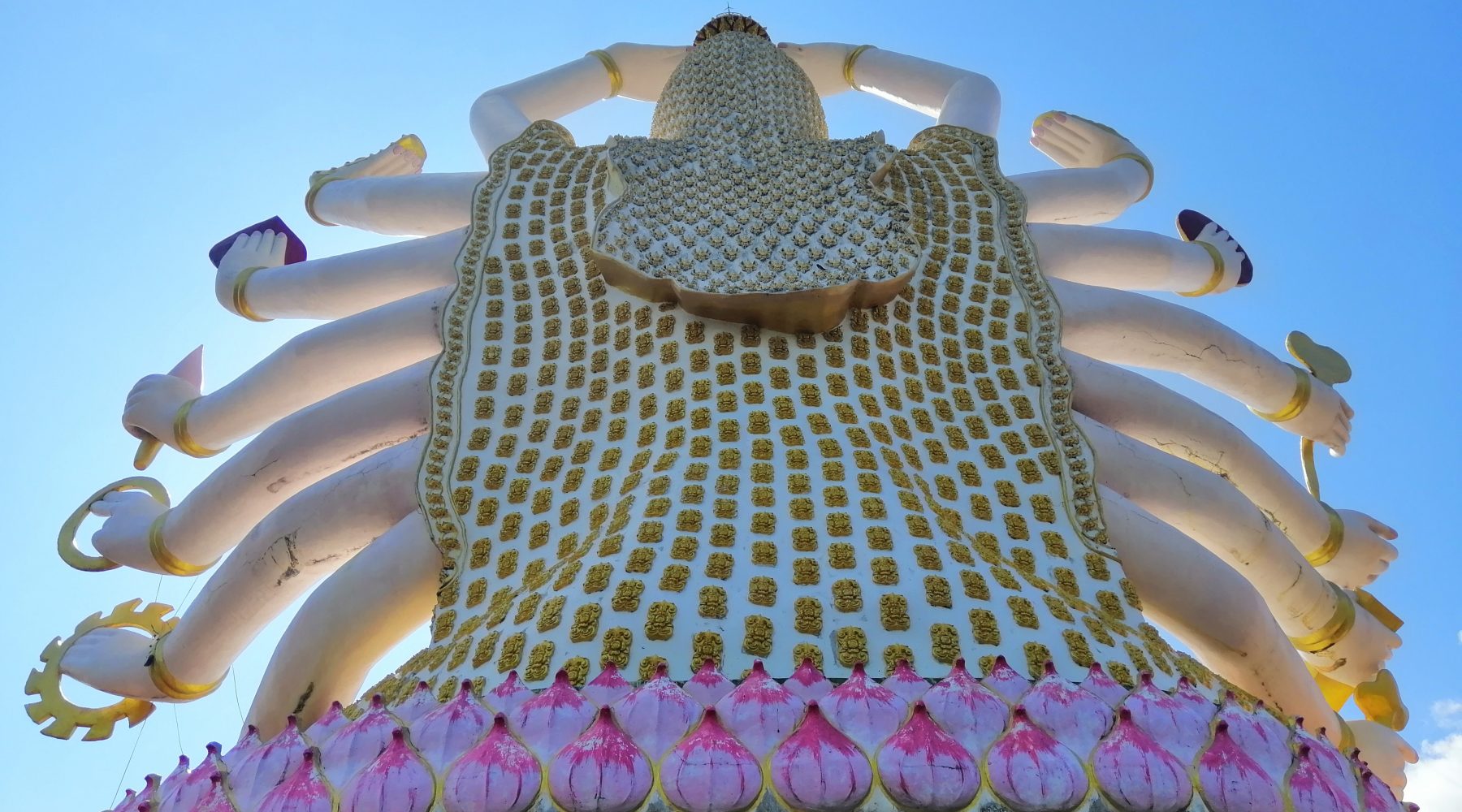Religion, spirituality, community and the EYLF

What happens when a culture of religion created by children, families and community groups is at odds with the inclusive ethos promoted by the approved learning frameworks? How can educators navigate and manage the tensions when the cultural constructions outside the service do not match with the cultural constructions inside the service?
The Sector Editor Freya Lucas undertook this exploration, seeking to learn more about how service providers, educators, researchers and others are navigating this complex space.
The EYLF
The Early Years Learning Framework (EYLF) reminds those working in early childhood education and care (ECEC) that children, from before birth, are connected to family, community, culture and place. The educators guide to the EYLF further defines culture as “what we create beyond our biology – not given to us, but made by us”.
Culture, then, incorporates the scope of human diversity and a number of ways of being, such as gender, ethnicity, class, religion, ability, age, and sexuality. As culturally competent educators, the educators guide reminds us, we need to think deeply about how our work can support each child’s developing identity and self worth.
The EYLF makes no mention of the word religion, choosing instead to highlight the role in which an individual families beliefs and spiritual dimensions may shape children in the time before they come to be part of an early years service. It defines the word spiritual as referring to “a range of human experiences including a sense of awe and wonder, and an exploration of being and knowing”.
Acknowledging that there are many ways of living, being and of knowing, the EYLF notes that children are born belonging to a culture, which is not only influenced by traditional practices, heritage and ancestral knowledge, but also by the experiences, values and beliefs of individual families and communities.
The role of the child ‘becoming’ is noted in the framework, with educators coming to know that ‘becoming’ includes children building and shaping their identity through their evolving experiences and relationships; “Children are always learning about the impact of their personal beliefs and values. Children’s agency, as well as guidance, care and teaching by families and educators shape children’s experiences of becoming.”
By embracing the spiritual components of who children are, the EYLF notes, educators recognise the connectedness of mind, body and spirit. Taking a holistic approach, educators are encouraged to “pay attention to children’s physical, personal, social, emotional and spiritual wellbeing” as well as cognitive aspects of learning.
A place for religious education in the EYLF?
In a journal article exploring the integration of religious education and the EYLF, Dr Jan Grajczonek, Adjunct Professor of the University of Notre Dame, explores the opportunities and challenges for early years religious education, noting that, from her perspective, “a number of critical elements have been left unsaid in the EYLF, and such silence potentially creates ambiguity, which can, in turn, result in omission”.
Ms Grajczonek sees this “sphere of silence” as a significant opportunity for “religious education to arise”, beginning with a clear and explicit articulation of the role religion can play in children’s spiritual lives. Linked with this opportunity, she says, is the need for “a clear articulation of the nature of religious diversity” and how to acknowledge and pay attention to that in early years settings both informally in the lived daily routine, and formally in the early years curriculum.
What is the silence and the ambiguity? What guidance does the EYLF, and its broader supporting documents give, in terms of the spiritual lives of children, and how educators can best work in, and sometimes around, this space?
United Nations Convention on the Rights of the Child
The UN Convention on the Rights of the Child is an international guide to the rights that children are entitled to. These rights have been listed and agreed to by the United Nations and almost every country in the world has agreed to these rights, including Australia.
As a signatory to these rights, Australia, and by extension, Australian educators, have agreed to uphold each right for every child. The rights are interconnected, with each having equal importance.
In its simplified form, Article 14 of the Convention reminds children that they have the right to their own thoughts, beliefs and to choose their religion – with guidance from their parents. It reminds children that they are free to be of any or no religion, and that whilst parents may provide guidance, children cannot be forced to adopt a religion or to stop following a religion.
It reminds all those in the life of a child that children and young people shouldn’t be discriminated against because of their religion. They should be treated the same as everyone else, no matter what they believe.
Interestingly, Article 14 also covers the right to freedom of thought. This is the right of a person to have their own ideas, thoughts, opinions and beliefs― and for nobody to be able to stop them from holding them. A person has the right to keep their beliefs private, and shouldn’t be forced to reveal them.
Freedom of conscience is also covered by Article 14. This is a person’s right to refuse to do things to which they object to for real moral reasons.
Article 30 of the United Nations Convention on the Rights of the Child reminds children of their right to practice their own culture, language and religion – or any religion, language or culture they may choose. It reminds them of the special protections afforded to those in minority and Indigenous groups.
Philosophical drivers and religious education
The Montessori philosophy is secular, with no particular religion taught as part of the curriculum, teaching instead that all religions, and all peoples are respected.
The Montessori Australia Foundation notes “Respect is a key component in a Montessori classroom – respect for the child, respect for the environment, respect for others and respect for oneself. Religion is looked at from a cultural and sociological point of view. Children are invited to explore the cultures throughout the world and can see that there are many different religions.”
Religious holidays, such as Christmas, Hanukah, Lunar New Year and Ramadan, are “experienced on a cultural level as special days of family feasting, merriment, and wonder” with individual schools and services able to determine the practices which best meet the needs of their community.
“While Montessori does not teach religion, we do present the great moral and spiritual themes, such as love, kindness, joy, and confidence in the fundamental goodness of life in simple ways that encourage the child to begin the journey toward being fully alive and fully human,” the Foundation said.
Reggio Emilia, a town in Italy, is famed for a parent movement, which began after World War II. A group of parents in the town decided a better approach to teaching children was required, developing a program which emphasised respect, responsibility, and community involvement.
Using the Reggio Emilia educational perspective as a driver, children are allowed to explore and discover in a supportive and rich environment, where the curriculum is created around the children’s interests. It centres on three main tenants; the child, the environment and the educator.
The Reggio perspective on education centres on exploring topics of interest to the child in the context of community, and relies on those within the community to co-construct learning alongside the child. In some contexts, this may include religious education, as led by the child and their curiosity and wonder.
In this sense, it is important to make a distinction between making an important distinction the religious dimension, or religiosity, and religion as a whole, which in turn comprises all the different religions.
Secular preschool, religious education, alternative providers
For 27 years, Castlecrag Montessori School has offered a parent-run, non-denominational, co-educational preschool and kindergarten program. Offering Montessori focused classes for children from three to six years of age, the service is located on Sydney’s prestigious lower North Shore, and has 30 children from surrounding suburbs attending. Castlecrag Montessori School is housed in a building owned by St James Anglican Church, and is due to close at the end of 2019.
School committee member Theresa Paredes told The Daily Telegraph that the lease for the school has been terminated, because the parent committee declined a request from the church to include compulsory religious learning into the syllabus. Such a move, the parent committee said, is not in line with Montessori methods, and the school’s philosophy of inclusion.
In response to the refusal, the Telegraph reported, the church moved to find an alternative provider to manage the space, with a spokesperson for the church telling the Telegraph that the decision was made partly because of an absence of Biblical stories in the daily program, and partly because the Montessori school was struggling with numbers and not meeting facility fees, adding “We’ve been effectively subsidising a program which isn’t aligned with our mission.”
As a result, a new provider – Integricare – has been invited to open an extended hours early learning centre in the space occupied by the Montessori program, a move which the church says is more “in line with community needs”.
Integricare, an approved provider with 15 sites in operation, or soon to be operating, around various Sydney suburbs, has a vision – to be leaders in providing holistic, innovative and integrated services for children and families. The group wants to achieve transformation in the communities they serve through following its purpose – to enable children, families and communities to experience the love of Jesus. The church, the Telegraph said, did not confirm if Integricare would be paying higher fees than the Montessori service as part of the new leasing agreement.
A number of early childhood education and care (ECEC) service providers exist to cater to the different philosophies and beliefs of families and communities. As such, there is provision for all families to be able to find care for their children that meets their individual needs.
ECEC services who are currently navigating this space – we want to hear from you! Please, reach out to us at The Sector in the comments below, and let us know about how religion, spirituality and community are managed at your service.
Resources to support
Educators who are seeking guidance about how to incorporate a diverse range of religious perspectives into their secular services may find the following resources of use:
- Cultural Connections Booklet, produced by Child Australia
- Spirituality is an aspect of children’s self identity – but how do we teach it?
- ‘Becoming Worldly with’: An Encounter with the Early Years Learning Framework
- Thinking about ‘Identity’ in the Early Years Learning Framework
Popular

Policy
Practice
Quality
Provider
Research
Safety starts with supervision: responding to real risks in ECEC
2025-07-07 10:30:58
by Fiona Alston

Policy
Provider
Practice
Quality
Jay Weatherill appointed to co-lead urgent review into childcare safety in Victoria
2025-07-07 07:24:04
by Fiona Alston

Quality
Practice
Provider
Workforce
Reclaiming Joy: Why connection, curiosity and care still matter in early childhood education
2025-07-09 10:00:07
by Fiona Alston












